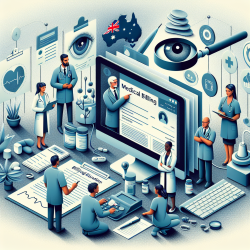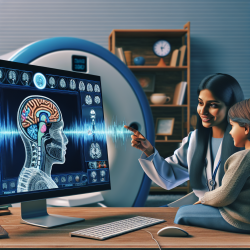Medical billing errors and healthcare fraud have been identified as significant contributors to wasted global health expenditure. According to the World Health Organization, these issues account for approximately 7% of global health costs. In Australia alone, incorrect billing and fraud cost the taxpayer-funded Medicare system billions annually. The complexity of medical billing systems and the lack of formal education on this subject contribute to these challenges.
The Current State of Medical Billing Education in Australia
A recent national cross-sectional survey conducted by Australian medical education stakeholders highlights a critical gap in the education of medical practitioners regarding medical billing. The study, titled "Who teaches medical billing? A national cross-sectional survey of Australian medical education stakeholders," reveals that a majority of stakeholders do not offer courses on medical billing. Despite this, there is a strong consensus that such education is necessary.
- 70% of stakeholders surveyed have never offered a medical billing course.
- 89% believe that medical billing should be taught to practitioners.
- There is no consensus on when or how this education should occur.
The Need for a National Curriculum
The study suggests that rather than relying on ad hoc training, there should be a development of a formal national curriculum for medical billing in Australia. This curriculum would aim to improve compliance, expedite judicial processes, and reduce waste within the healthcare system. Such educational initiatives have been shown to save significant amounts in healthcare costs by preventing errors and fraudulent activities.
Benefits of Improved Medical Billing Education
- Enhanced Compliance: Educating practitioners on correct billing practices can significantly reduce the incidence of errors and fraud.
- Cost Savings: Targeted education has proven effective in saving millions by preventing incorrect claims.
- Professional Development: Practitioners gain valuable skills that enhance their professional capabilities and reduce legal risks.
Encouraging Further Research and Development
The findings from this study underscore the importance of further research into effective methods for teaching medical billing. By exploring international best practices and tailoring them to the Australian context, stakeholders can develop comprehensive educational programs that meet the needs of practitioners across various specialties.
TinyEYE's Role in Supporting Education
TinyEYE is committed to supporting educational initiatives that enhance professional skills among healthcare providers. By offering online therapy services and collaborating with educational institutions, we aim to contribute to a more informed and compliant healthcare environment.
To read the original research paper, please follow this link: Who teaches medical billing? A national cross-sectional survey of Australian medical education stakeholders










